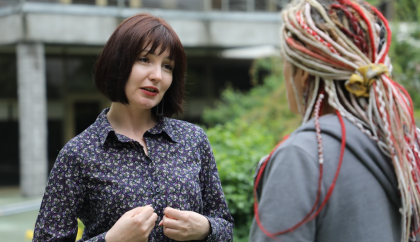
Mariana Hevko is one of those people who are often described as warm and radiant. A child psychologist from Ternopil, she visits Kyiv only occasionally, yet her voice and expertise are essential in discussions on difficult issues. Mariana works with children who have become victims or witnesses of sexual abuse, particularly by supporting them throughout judicial proceedings. Her presence provides a sense of support, safety, and the opportunity to be heard without coercion or fear.
Reprinted from Ukrinform.
In fact, there are very few such specialists in Ukraine. Work of these people, without exaggeration, saves lives. It protects the child in the moment, safeguards their future, and helps adults recognize what is often hidden behind silence. Although this is not always the case.
In addition to her work in prevention and response to abuse against children, Mariana also volunteers to support internally displaced families with children, consults parents, facilitates family dialogue, and engages in advocacy projects. She is currently a leading expert in the information campaign “Sexual Abuse on the Internet: How to Protect Children,” implemented by the DOCU/CLUB Network of film clubs. The discussion “How to Protect Children from Sexual Abuse Online,” accompanied by a screening of the documentary Caught in the Net by Czech filmmakers Vít Klusák and Barbora Chalupová, recently took place in Kyiv within the framework of this campaign. The film reveals methods used by perpetrators to harm children. Representatives from the National Police, the Ministry of Education and Science, civil society organizations, educators, and parents took part in the discussion—each highlighting the challenges that too often remain invisible to the wider public. The conversation continued well beyond the scheduled time, clearly indicating that the topic deeply resonated with the adult audience.
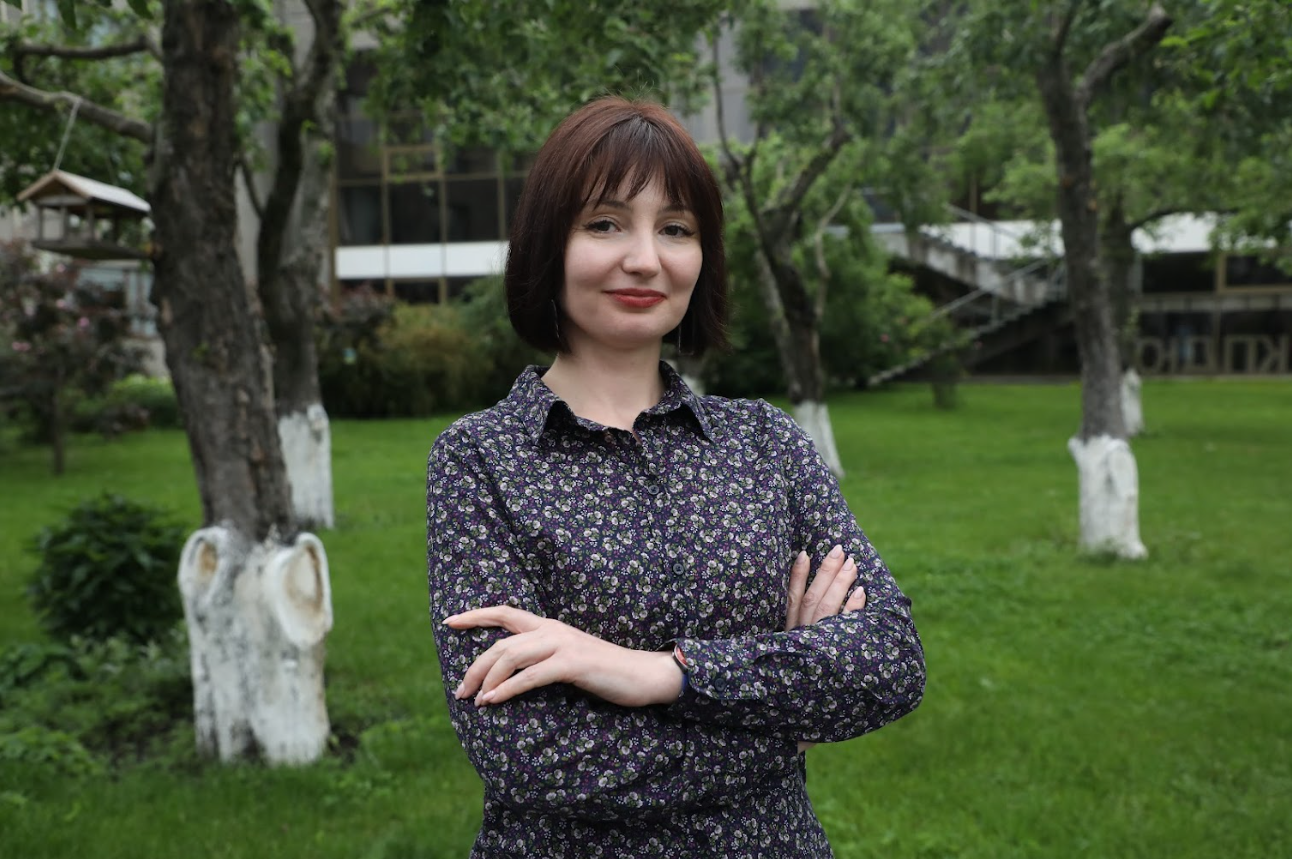
Mariana Hevko
Today, Ukrainian children face numerous threats, including war, traumatic experiences, and a digital environment where feeling lost is easy and finding support is difficult. Many are reluctant to speak to adults about what truly hurts. This is why our conversation focuses on trust, protection, the importance of being present, and the ways how, even in challenging circumstances, adults can not only safeguard children but also become their source of strength.
- Mariana, why did you choose to focus on this topic? Abuse against children on the Internet was rarely discussed even before the war. It seemed almost absent from the media and public space...
- I’ve been working with children at least since 2001. I still went to school myself, but I already worked with children. My entire professional path has been devoted to working with children and for children. I strived to be the person today’s young generation truly needs – a safe, reliable adult in this confused world. After all, children are always about the future.
From an egocentric point of view, I’ve often thought: what kind of world would I want for my own child? And when my son was born, it became very important to me that he grows up in the safest world possible. The children we raise become the adults that surround us. It became vital for me to contribute to creating that world for myself and for my son. We shape it through the way we raise our children.
Doesn’t the world look especially threatening to you, given that you constantly witness its risks?
- The world is what it is. I work professionally with trauma, violence, and cruelty. But that doesn’t mean there is no other side to life. On the contrary, it allows me to see the whole picture and appreciate the world in its entirety.
And if I can be the one to help even a single child – just one child! – this already carries tremendous meaning. For me, this work is deeply meaningful. Working with children is, fundamentally, about meaning.
- Have you personally been able to help at least one child?
- Whenever I’m asked what inspires me in my work, I always reply, “Children’s eyes.” Always. When a child, after a difficult conversation, finally finds the courage to speak about a traumatic experience, comes up, hugs me, and says, “Thank you so much.” When parents who were deeply worried about how to support their child approach me with gratitude for creating a safe space and for showing care.
Children are incredibly sincere in their reactions. They never hold back when someone has done something kind for them. They show it, openly and genuinely.
However, it’s important to reflect on one’s position. I do what I can. There are times when I simply cannot do more.
- What is it that you cannot do?
- I can’t always… you know, save a child. I can only work with the experience they already have. The child already carries certain experiences, and I can’t take them away. I can’t erase their memories. What I can do is help them cope with it, help them gain new experiences that might balance or even outweigh the previous ones.
Children are, in fact, deeply resourceful – they just need someone to show them the way.
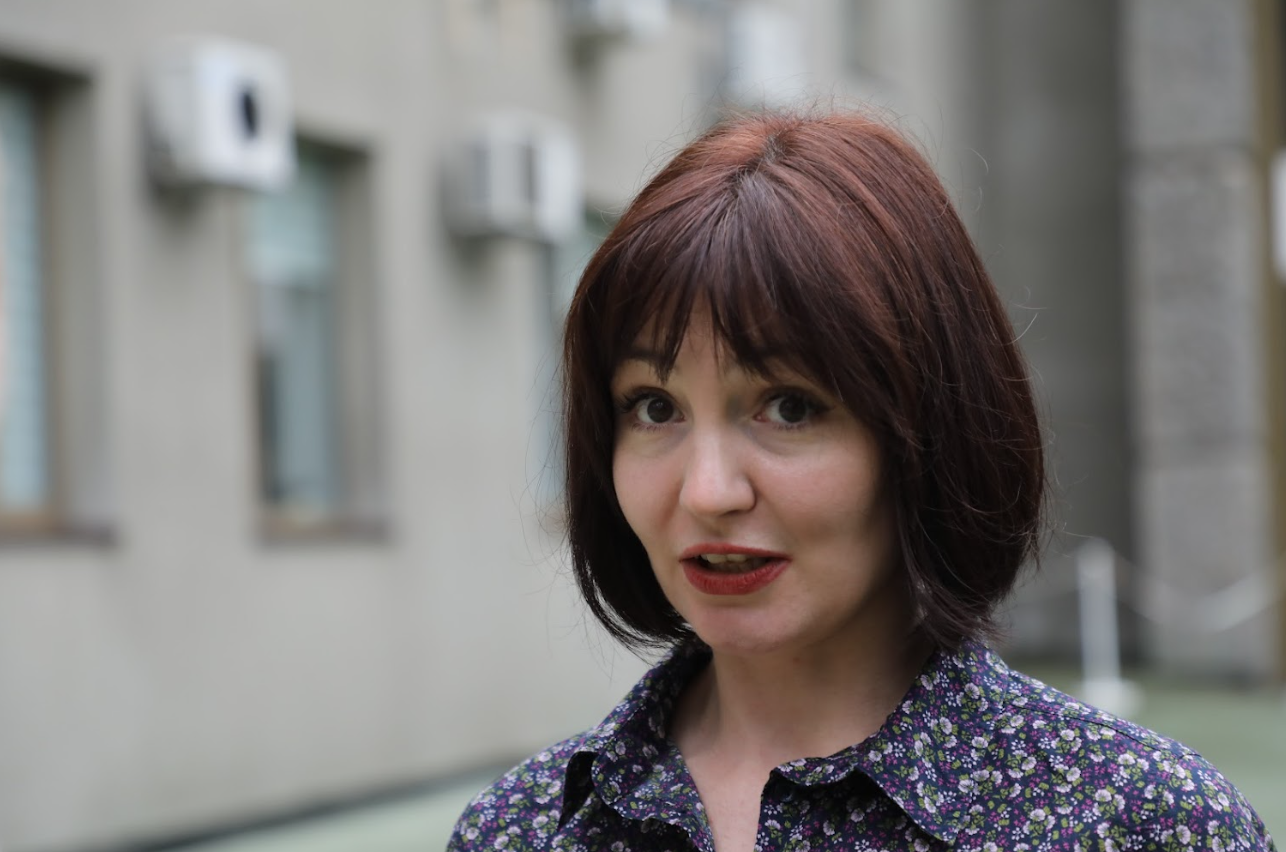
Mariana Hevko
Another aspect of my work is prevention and mitigation of certain risks. It is incredibly important for a child to realize their own value, abilities, and inner resources, especially in terms of learning how to protect themselves.
Every child should have an adult who teaches them how to defend themselves and stands by them if something goes wrong. That’s precisely why we are running the awareness campaign with the DOCU/CLUB Network: to ensure there are more of these safe adults. In order to achieve that, we need to explain to adults some threats faced by children, ways to recognize those threats, respond to them, and protect children. And, last but not least, how to teach children to say “No.”
There was a case when I was working at a school. I would tell children: “Your body is your own. If any kind of touch makes you uncomfortable, you have the right to say so, whether it’s a teacher or a classmate.” It was just a conversation. Afterward, a girl approached me and said, “I feel very uncomfortable when my classmate slaps me on the butt.” They were in seventh grade. She added, “I don’t know what to do. I am petrified. I laugh, as if I find it funny, but in truth, I am petrified.”
I suggested, “Why don’t we talk to him about it?” She replied, “How could I say that to him? He might laugh at me.” I said, “You can do it here, in a safe space.”
We invited the boy, and I facilitated the conversation. The girl said openly: “I feel very uncomfortable when you do that.” He was surprised and said, “I thought you liked it.”
Then she was able to express her needs: “Please don’t do that. If you want to show you like me, this is what you can do.”
This is what it means to teach children to express themselves. It’s very difficult for them to talk about many things. Our task is to teach them what healthy interaction looks like.
That one simple conversation made a difference. But before it happened, that girl realized: she had the right to her own feelings, to her discomfort, even if others said, “Oh, come on, he is just flirting.” This is symptomatic of adult “blindness” to what may seem like minor issues. But it’s also about raising a person who will respect other people’s boundaries.
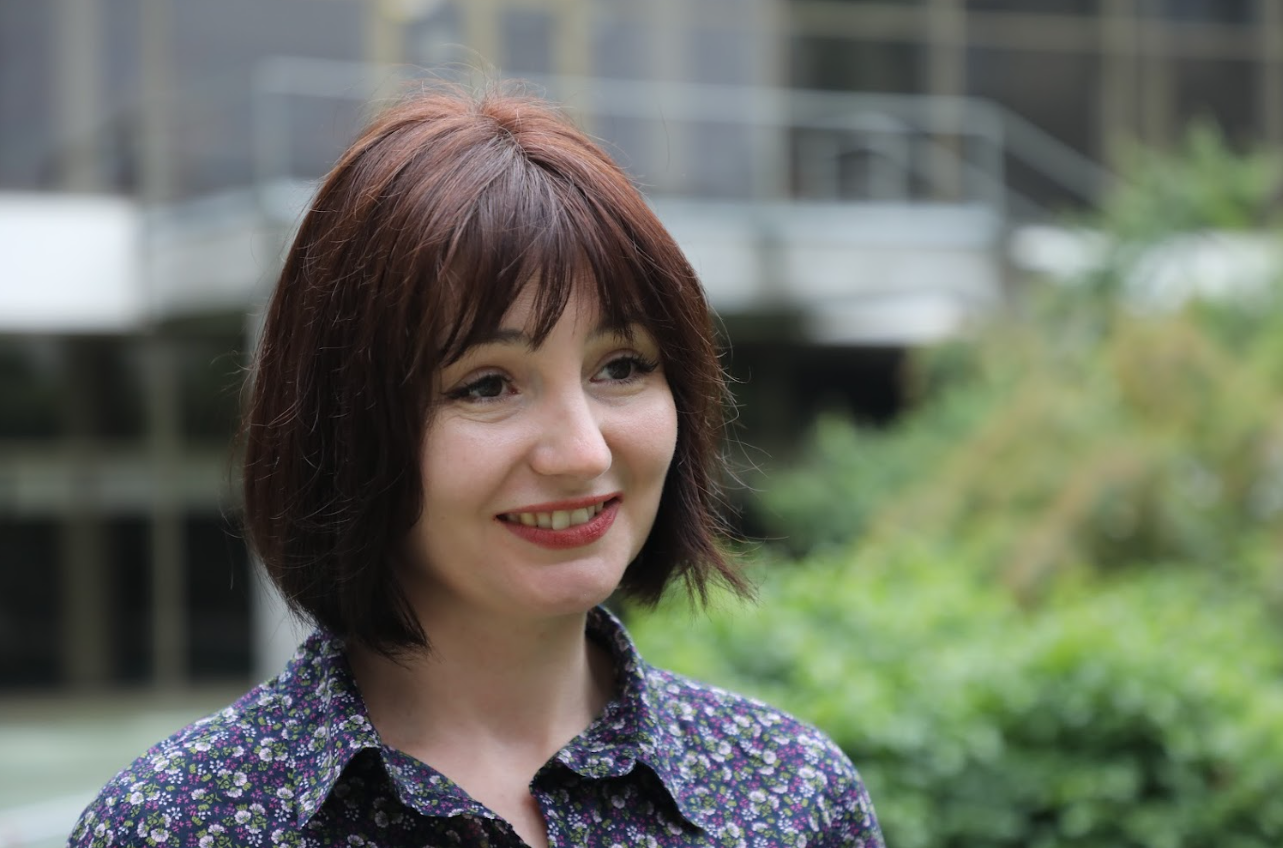
Mariana Hevko
- This also touches on a deeper issue – the type of abuse that often goes unseen, because it’s “not a big deal.” Consequently, it remains a blind spot for many adults. I believe it’s connected to our culture of upbringing, traditions that normalize hitting children, subjecting them to corporal punishments, or refusing to speak to them for days. We have generations of traumatized parents who carry forward outdated, patriarchal methods and impose them on today’s children. One of the biggest challenges is coming to understand that a child deserves respect. Just try saying that to a parent, though.
- Contemporary parents are different, but most truly want what’s best for their children. They worry. Sometimes they don’t believe that certain situations could have serious consequences in a few years, or they fail to grasp how difficult certain experiences can be for a child at a given age. Adults often forget their own childhoods. They assume, “That’s life, and kids will get through it somehow.”
But every parent truly does want to protect their child and ensure a better future for him or her. The thing is, they only know the approach they themselves experienced. And they believe it’s the right one, because they’ve never known another.
Parental responsibility lies in learning to understand and respect their child. We should educate parents well – not from a place of scolding or blame, not with aggression, not with “Look what you’ve done,” – but instead, by saying: “You have a choice in how you raise your child. But here is what this approach may lead to… and here are the possible consequences. By the way, these are backed by professional research.”
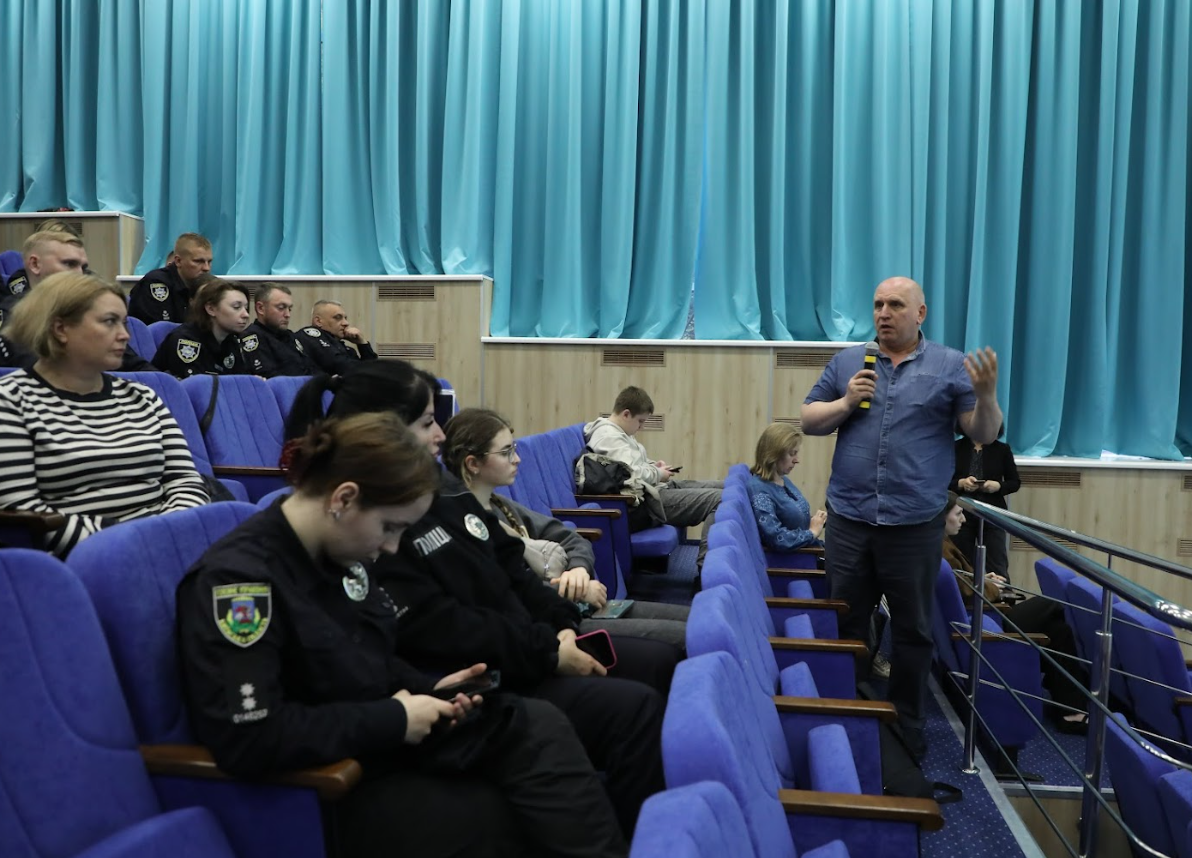
Discussion after the screening of the film "Caught in the Net"
- Which brings us to a related question: is the digital divide between parents and children truly inevitable? Do you observe a generation gap in the online space?
- In general, generational divides are completely normal. We simply can’t fully understand everything our children do, because we don’t live in their world, and that’s natural. We don’t follow them around. We aren’t part of their environment. It’s like two different cultural worlds. And diving into their world can be too exhausting for some parents. Not everyone is capable of doing that, which is important to acknowledge.
Likewise, children don’t always understand what their parents want from them. It’s difficult for everyone. But we’re not expected to know everything about the world our children inhabit, because that’s just not possible.
What we must do is send our children this message: “I may not understand you, but I am willing to listen.” Sometimes it’s incredibly hard for children to open up, because their parents can’t stay emotionally neutral. This is the most difficult part for adults. They might say supportive words, but their facial expressions show anxiety or disapproval, and children realize that and stop sharing.
This is especially true when it comes to traumatic experiences. Children are frightened by their parents’ first reactions, which often include a freeze response or shock. Recently, I came across a crying boy. Other children had beaten him up and knocked off his glasses. He was extremely upset, in a state of panic. I suggested calling his mother. At first, he didn’t want to. I persuaded him gently for a while. Eventually, we called, and I explained the situation and asked her to help calm him down. But as soon as he held the phone to his ear, he broke down again and said: “I shouldn’t have told you anything. I wish I hadn’t called. She’s blaming me.”
I asked him: “What exactly did she say?” And her first sentence was: “Why were you talking to strangers in the first place?” That was her defense mechanism kicking in. She was terrified, and that’s how she reacted.
We all do that sometimes: “How many times have I told you…!” What does a child actually need at that moment, though? “Sweetheart, my little one, calm down. I’m so sorry this happened. I’ll drop everything and come get you. Just stay there, okay?” We need to stabilize the child, which is incredibly difficult for parents.
They fall back on automatic maternal or paternal responses. They start blaming themselves, and in their sense of helplessness, they lash out at the child. But the child cannot process that, and so they stop talking. It becomes a vicious circle from generation to generation.
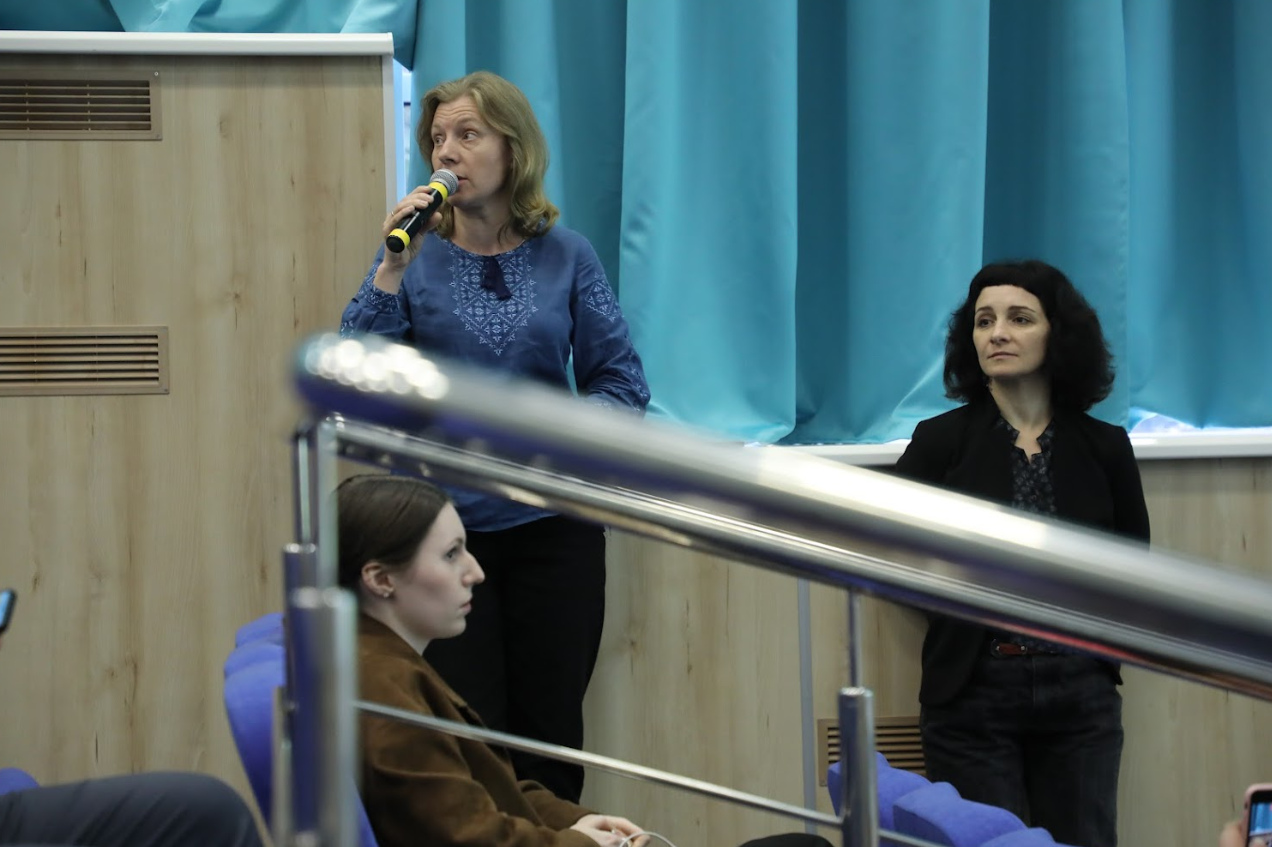
Discussion after the screening of the film "Caught in the Net"
- We often speak about the internet as a risky space. But is it only about risks? Should parents be afraid?
- No, it’s simply a world, just like the real one. It is a space of risk, but also of opportunity, inspiration, joy, and discovery. The internet is a digital dimension of life. It offers a vast amount of useful content: interesting information, opportunities for growth, ways to explore one’s interests and learn. Of course, there are risks as well. We need to be aware of them and know how to stay safe. That doesn’t mean we should reject living in this world.
- What about the idea of cutting children off from social media entirely?
- That doesn’t work. It is like saying, “Don’t go outside because a brick might fall on your head from a balcony.” That is fear of life itself. The same applies to the internet. It is now an integral part of daily life. But can parents have an influence on it? Yes, absolutely. This is a part of parenting. They have the right to set boundaries, implement some control mechanisms, and teach their children about safety rules.
To do that, they need to know those rules themselves. An informed adult understands from what exactly they are protecting their child from. This enables them to set reasonable limits and, more importantly, to build a deeper and more trusting relationship with their child.
- Can parents influence the statistics showing that only 10% of children are willing to talk to their parents about problems they face online? Is it enough to say: “If something happens, come to me”?
- Yes, parents can absolutely have an impact. But it has to start from the child’s earliest years. The key question is: Am I prepared to hear the truth? Am I ready to hear that my child talked to a stranger online or ended up in a risky situation? Am I ready to accept that my child can misbehave, make mistakes, and is not perfect?
Our reaction to problematic behavior is crucial. If you can tolerate your child’s negative behavior while remaining a safe, supportive adult, they will be more likely to trust you. But if you expect your child to always behave politely and correctly, they may fear telling you the truth in a crisis situation for fear of upsetting, disappointing, or letting you down. And that’s when they start blaming themselves.
The official statistics are alarmingly low. According to Interpol, there are 46 million images and videos globally that contain child abuse or child sexual exploitation, and that’s only official statistics. Imagine how much more remains undocumented.
The situation in Ukraine is dire. Unfortunately, we are among the leading countries in the circulation of such content. If you ask children whether they’ve ever communicated with an adult online, at least half or even more will answer positively.

Mariana Hevko
- Simply talking to an adult online isn’t always risky, is it?
- It is always a risk. Not necessarily dangerous, but always risky. What percentage of such interactions turn into unwanted or harmful communication? Statistics don’t truly reflect that. As specialists, we see it is far more common than people realize. That is why we say that, potentially, every child is in the risk zone. There are no uniquely “vulnerable” children. All children are vulnerable.
It is crucial that parents, educators, and all professionals working with children understand this. I wish every adult would have watched the documentary Caught in the Net, because it clearly explains how predators target children and manipulate them. It helps adults explain to children why caution is necessary, which, in turn, helps bridge the generation gap as well.
- Talking about one’s body and exchanging messages have also become part of life. It seems inevitable. Is there a clear line between flirting and unacceptable content?
- There is a line. When adults manipulate, ask for favors or gifts, express their desires – that’s where the line is crossed. But there is also a crucial legal aspect of age. We need to make it clear that consent to sex is not about a child saying “yes” – it must be informed and voluntary. In Ukraine, consent is only legal from the age of 16.
What does this mean? Even if a 14-year-old says, “I’m ready, I want this,” this is not considered consent. Even if the child insists, “It was my choice, we’re going to live together,” that does not absolve the adult of responsibility. It is still considered corruption of a minor. At age 14, a person does not yet have the psychological or legal maturity to give consent. This is important to understand.
There are numerous criminal cases where, for example, a 25-year-old man is in a relationship with a 14-year-old girl who may appear physically mature, but psychologically, she is still a child.
- In that case, circumstances do not matter. I remember how my grandmother used to speak nostalgically about her youth, even though it was during the war. What about today’s children growing up in wartime? Is there a risk that they will become a “lost generation”? What are your observations so far?
- War is a traumatic experience, and every child responds to it differently. Even now, we are already seeing certain patterns. Most notably, isolation. Communication is becoming increasingly virtual. Teenagers have been spending a lot of time online, but it has even increased dramatically because of COVID and the subsequent war. Many children have spent years in remote schooling, without full-fledged social interaction offline. This has a significant impact.
The psyche adapts, new mechanisms develop, but children are literally plunging into the digital world. At the same time, they are exposed to violence, both in real life and in digital content. They see cruelty, explosions, and death, which causes trauma. Even adults often fail to process the sheer volume of information. For children, it’s even harder.
We often say that adults must make the internet safer. This is a matter of public policy. There must be mechanisms for limitation, filtering, and blocking. The overabundance of information is a serious challenge. If a child has no opportunity to process and reflect on what they see, their psyche becomes overloaded and traumatized. We even advise adults to limit their information consumption. Otherwise, everything remains at the emotional level. When we don’t have time to process an experience and make sense of it, we become emotionally exhausted.
- What would you advise parents regarding the internet and children’s online safety? What should they watch out for? What are the red flags?
- This is always a difficult question. I always say that you are the person who knows your child best. Therefore, pay attention to any changes in their behavior. Some of the examples may include feeling uncomfortable in one’s body, experiencing anxiety and withdrawal or, on the contrary, hyperactivity or aggression. There may be sudden loss of friendships or the appearance of a new group of peers you know nothing about. Moreover, observe changes in school performance, sleep patterns, or appetite. If there is inexplicable pain, it’s better to get it checked.
I also advise parents to regularly discuss safety with their children. Explain that they must never post confidential information online, such as home and school addresses, their real name, and photos of their home or room. Personal or family information should not be shared with anyone.
Last but not least, children must know they always have the right to say “No.” If something feels unpleasant, uncomfortable, or disturbing, they should stop the interaction. If someone sends them inappropriate content, it is important to preserve the evidence (screenshots, messages), end the communication, and tell an adult. If a child encounters violent or disturbing imagery online, they should also report it to a trusted adult or flag the content.
These are basic rules. They must be repeated again and again. A hundred, even a thousand times.
Also, be alert if your child suddenly starts having money or items of unclear provenance, such as clothing, food, and accessories. These can all be warning signs. If your child asks for money or stays overnight somewhere, it’s important to verify where and with whom they are staying. Get contact information for the parents of their friends, ask for photos and a check-in. Of course, sometimes that means maintaining a degree of control. Until a child learns to protect themselves independently, this is an adult’s responsibility.
I truly hope we can teach adults all of this. At the very least, my colleagues and I are actively working toward that goal.
- The last question is a personal one. You work with deeply traumatic topics. Where do you find strength to recover and keep working?
- I always say: there is another side to the world, the one that brings joy. Sometimes it’s the simplest thing, such as a scent. I love the smell of roses (we’re speaking near a blooming rose bush, which Mariana keeps glancing at). I can just sit in nature and breathe. To me, this is about life itself. I love embracing my child, even though he’s already grown up and doesn’t always want to hug. Still, I love watching him grow.
It might be a good film, a conversation with friends, a book, or a learning experience. Sometimes it’s just lying down and staring at the ceiling. These are very small things, but they matter. Dark humor is also very helpful, as it allows you to release emotions.
Actually, every person can come up with many ways to recover. The most important thing is learning how to switch your focus. We all need to develop this habit, especially during difficult times. This is what helps us survive. All of us, children and adults alike.
Yaryna Skurativska, Kyiv
Photos by Yuliya Ovsyannikova
The development of the DOCU/CLUB Network is funded by the Embassy of Sweden in Ukraine, the National Endowment for Democracy (NED) and Fondation de France.
The opinions, conclusions or recommendations are those of the authors and compilers of this publication and do not necessarily reflect the views of the governments or charitable organizations of these countries. The authors and compilers are solely responsible for the content of this publication.
All news


